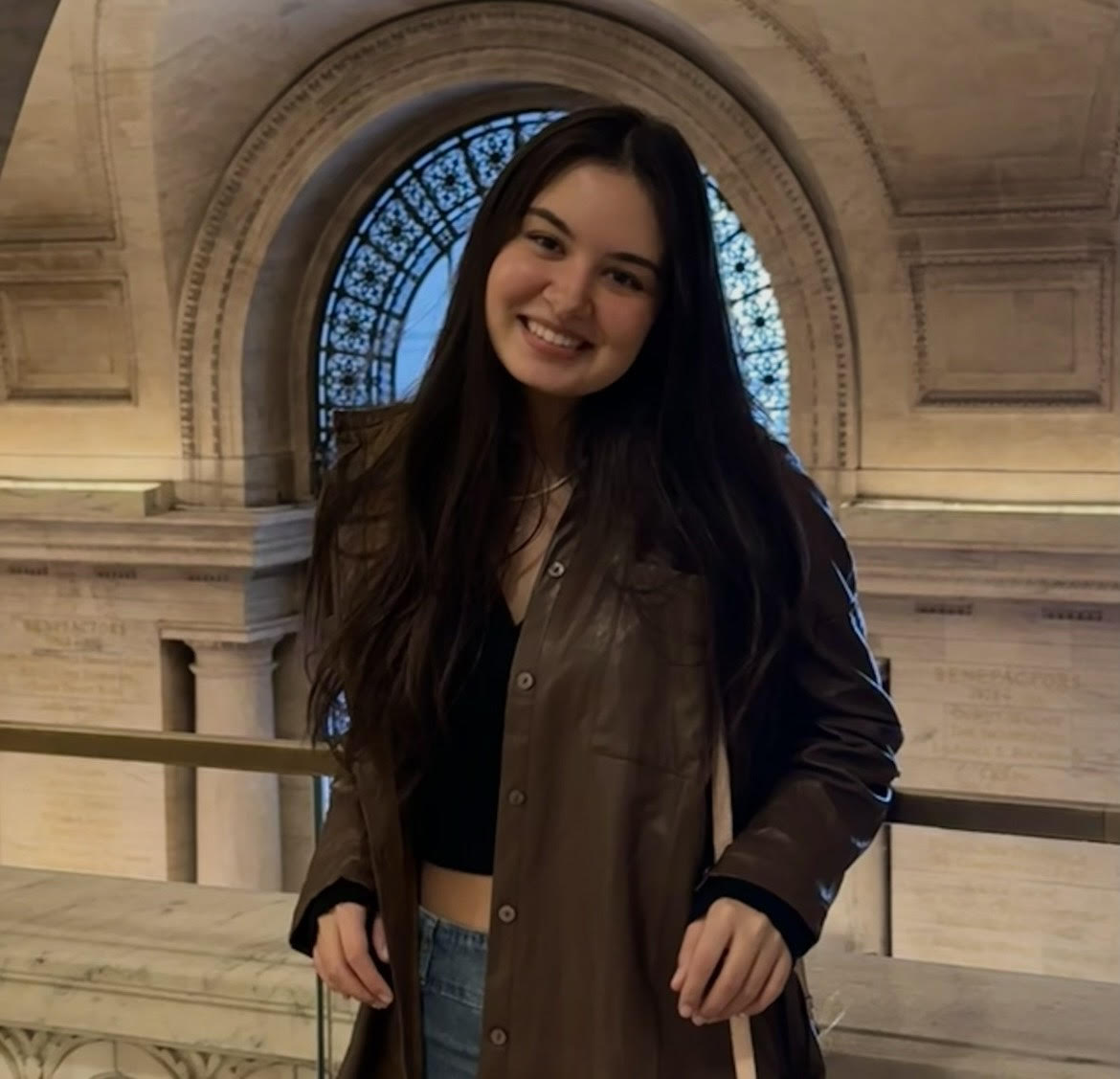Maritina Sardis '25
BS Human Evolutionary Biology

On her major:
I originally began my academic career at SBU as a pre-nursing major on the Health
Science track, with a minor in anthropology. Although I was accepted into the Nursing
Program here, I felt more drawn to exploring research opportunities and biological
sciences. Pursuing a minor in anthropology (earlier in my academic career) really
aided me in my decision of switching to the Human Evolutionary Biology major. I was
introduced to a range of fascinating fields such as forensic science, paleoanthropology,
and behavioral ecology. These experiences piqued my interest in understanding biology
through an evolutionary lens, which ultimately led me to transitioning into the major
I am graduating with today!
Plans for Post-Graduation:
After graduation, I hope to join an interdisciplinary research lab where I can explore
the intersection of epigenetics and neuroscience. I'm particularly interested in how
molecular processes like DNA methylation regulate gene expression in the brain, and
how they influence neurodevelopment, memory, and neurodegenerative diseases.
Interests:
Alongside my interest in epigenetics, I have also explored courses pertaining to behavioral
ecology and comparative neuroendocrinology, both of which involve the study of animal
behavior and physiology in their natural environments. In doing so, I have developed
a deep appreciation for the complexities of animal life and the delicate balance of
their ecosystems. I believe we can gain a great deal of knowledge and perspective
by studying organisms other than ourselves, and it is our responsibility to help conserve
and protect them in a world where human actions are increasingly affecting their habitats
and survival. In the future, I aspire to integrate my passion for music and singing
into wildlife conservation and advocacy efforts!
Accomplishments:
I had the opportunity to contribute as a teaching assistant for an Anatomy and Physiology
course (ANP 300) during my junior year, where I gained valuable teaching experience
and formed lifelong friendships with the other TAs and graduate students. I also presented
my year-long independent research project at the Undergraduate Research and Creativity
symposium, where I worked under the guidance of my exceptional research advisor and
mentor, Dr. Carrie Mongle! Finally, one of the most rewarding experiences of my academic
career was being selected as the Department Commencement Speaker, where I had the
honor of sharing my academic journey with my fellow classmates and professors.
Favorite SBU memory:
A moment I will remember most is actually credited to a professor I had sophomore
year, Dr. Catherine Markham. I was enrolled in her “Evolution of Human Behavior” course
(EBH 200) during a particularly challenging time in my life. Although I was not doing
exceptionally well in her class, I always looked forward to attending considering
how vibrant and engaging her lectures were. I often stayed after to discuss her research
and future directions for my career. She quickly became someone I could turn to for
guidance, not only on an academic level but on a personal one, as she offered encouragement
during a time when I needed it most. In particular, on the day of the final exam,
while reviewing my notes in the Union (feeling extremely nervous and uncertain), Dr.
Markham happened to notice me and paused to tell me, “I am so proud of you,” before
even taking the final exam. Knowing she cared more about my efforts than the outcome
of the exam itself has fueled me throughout the entirety of my college career to push
myself beyond my perceived limits and has instilled a confidence that has aided me
through every challenge I encounter. Along with Dr. Makrham, I will remember the professors
who put their faith in me, challenged me, nurtured my growth, and encouraged me when
I struggled to find my way.
Advice for future Seawolves:
Progress in nonlinear. Life, particularly during your college years, does not need to always unfold according
to a set path. You must learn to be comfortable in times of uncertainty (cause there
sure are a lot of them), and trust that each shift or change in direction is a mechanism
of growth, pushing you to learn, unlearn, and relearn, until you reach your goal.
